Search Results
Showing results 1 to 20 of 45
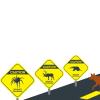
Caution! Wildlife Crossing
Source Institutions
In this design challenge, learners use their creativity and imagination to design and test a wildlife crossing for their favorite animal.
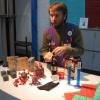
Surface Area
Source Institutions
In this demonstration, learners discover that nanoparticles behave differently, in part because they have a high surface area to volume ratio.
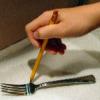
Be a Scanning Probe Microscope
Source Institutions
In this activity, learners investigate Scanning Probe Microscopes (SPM) and then work in teams using a pencil to explore and identify the shape of objects they cannot see, just as SPMs do at the nano
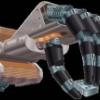
Build Your Own Robot Arm
Source Institutions
In this lesson, learners develop a robot arm using common materials. Learners explore design, construction, and teamwork, as well as materials selection and use.
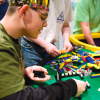
Construction and Destruction
Source Institutions
In this three/four-day lesson, learners calculate perimeters and areas and draw the castle plan to scale.
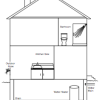
Be a Plumber
Source Institutions
In this activity (located on page 6 of the PDF), learners explore the ways people access water in their homes.

Clean Water: Is It Drinkable?
Source Institutions
In this activity, learners simulate nature's water filtration system by devising a system that will filter out both visible and invisible pollutants from water.
Pollution and Lung Health
Source Institutions
Learners will build a lung model to understand how their lungs and diaphragm work to make them breathe.

Shake it up with Seismographs!
Source Institutions
In this activity, learners explore the engineering behind seismographs and how technology has improved accurate recording of earthquakes.
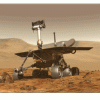
Design a Lunar Rover!
Source Institutions
In this team design challenge (page 2-10 of PDF), learners design and build a model of a Lunar Transport Rover that will carry equipment and people on the surface of the Moon.
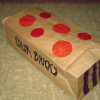
Assembly Line
Source Institutions
In this activity, learners work individually to assemble a product and then work in teams to design, construct, test, and redesign an assembly line process whose product must meet specific quality con

Get a Leg Up
Source Institutions
In this activity, learners experiment and collect data during a simulation of the fluid shifts experienced by astronauts' bodies in microgravity.

Earth's Water: A Drop in Your Cup
Source Institutions
This creative lesson plan provides a visual way for learners to gain knowledge about the finite amount of fresh water on Earth and encourages the discussion of the various ways to conserve this resour
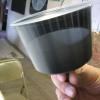
Mini Zoetrope
Source Institutions
In this activity (posted on March 27, 2011), learners follow the steps to construct a mini zoetrope, a device that produces an illusion of action from a rapid succession of static pictures.
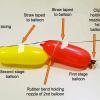
Achieving Orbit
Source Institutions
In this Engineering Design Challenge activity, learners will use balloons to investigate how a multi-stage rocket, like that used in the Interstellar Boundary Explorer (IBEX) mission, can propel a sat
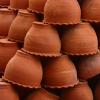
Pot-in-Pot Refrigeration
Source Institutions
In this activity (on page 2 of PDF), learners create a low-tech refrigerator that requires no electricity to keep food from spoiling.
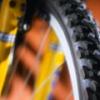
Give Me a Brake
Source Institutions
In this activity, learners explore the concept of how brakes can stop or slow mechanical motion.
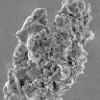
Properties of Dust
Source Institutions
In this activity, learners carry out a scientific investigation of dust in their classroom. Learners produce an analysis on graph paper of the dust they collect over the course of a few days.

Arduino Blink Challenge
Source Institutions
In this activity, learners explore computer programming and the impact of computers on society. Learners build and test a program to turn a light on and off using an Arduino board.

Filtration Investigation
Source Institutions
In this activity, learners explore how engineering has developed various means to remove impurities from water.
